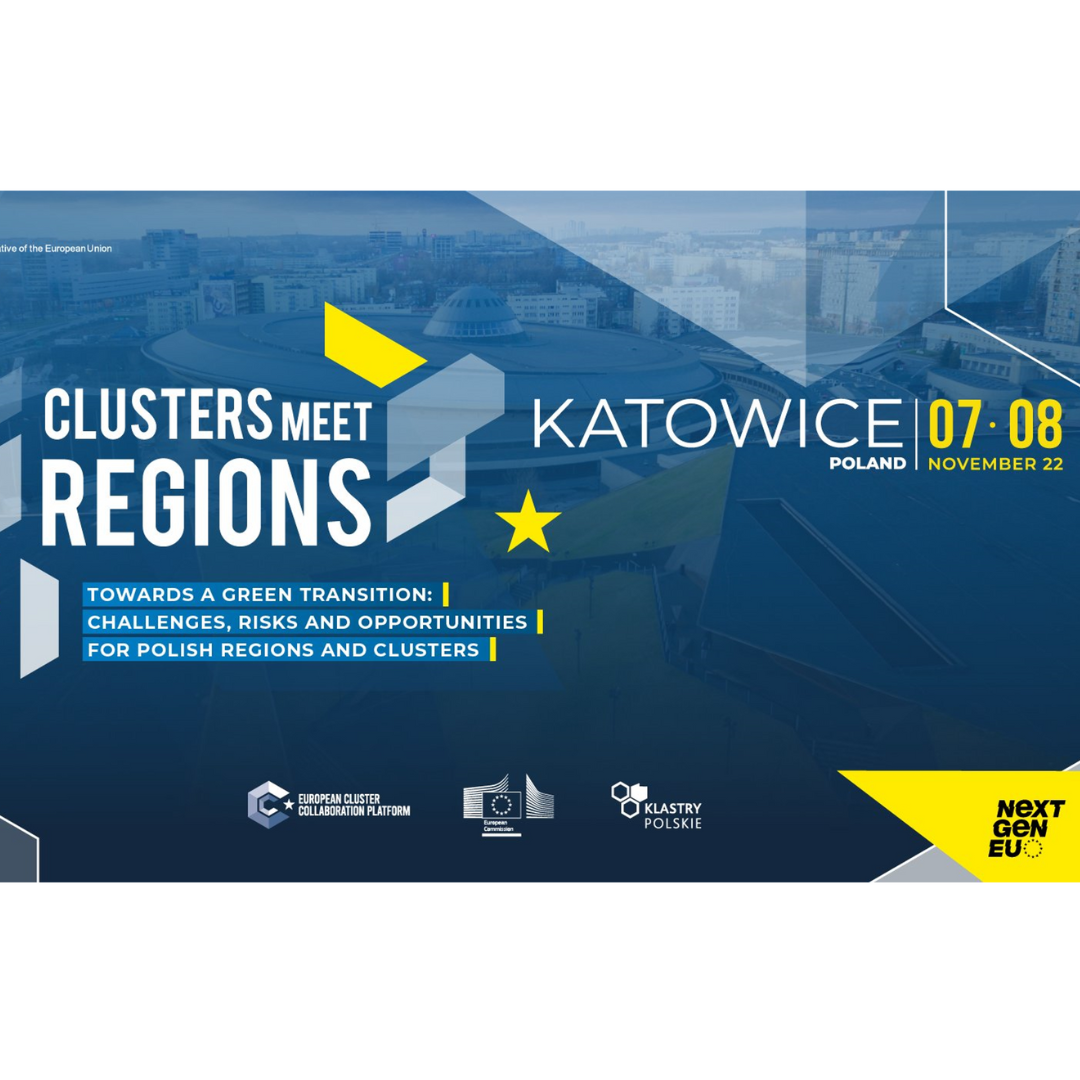Register here
Context and objectives
EU regions need to be able to compete with other more advanced and emerging economies in a fast-changing economic and social environment, in particular in the post-Covid-19 period and the Russian invasion of Ukraine. Location matters particularly for clusters. They develop more easily in urban and regional ecosystems with a favorable administrative and regulatory environment and access to skilled labour, markets, and financial and business support services.
What really matters is the involvement of clusters in regional economic governance, policy design and implementation at the regional level.
Regional authorities need to know their clusters and understand how they can shape, improve and effectively help in the design and implementation of regional development policies. Cluster organisations and their members should take action and implement projects that are relevant to the economic development of their local communities. They should engage in collaboration with other European clusters in the same or related economic activities and thus complement regional assets and reinforce capacities to lead the green transition, accelerate the digital transition and build resilience.
15 regional workshops are being organised in those EU regions that expressed an interest to host such a workshop in the period 2022-23 as part of the “Clusters meet Regions” cycle. These events will bring together clusters and policymakers of the EU, at national, regional and local level to learn from each other how to better use clusters to strengthen industrial ecosystems, serve national/regional economic development and liaise with other regions facing similar transition challenges.
The “Clusters meet Regions” in Katowice is the 3rd event of the series. It will focus on the priorities established by the region of Upper Silesia. The Upper Silesia region is an industrialized region with a high level of urbanization. Both industry and housing have been undergoing a continuous process of transformation for more than 30 years as of now. Between 2021 and 2030, the demand for solutions enabling energy and material efficiencies in the industry, construction, renewable energy generation and the integration of electromobility infrastructure into building infrastructure will remain high. Due to the high degree of urbanization and industrialization, as well as high population density – the Upper Silesia is one of the regions with the greatest anthropopression - intensive industrial development has contributed to significant, often irreversible, environmental degradation.
Green innovation is a response to legislative requirements and changing awareness among end consumers. The strong industrial character of the Upper Silesian economy makes the region the right place to develop and implement new material solutions, related to the ease of recovery of materials at the end of the life cycle of the products in which they were used.
Watch the personal invitation from Katowice, Poland here!
